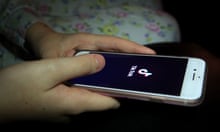Amy Orben is a research fellow at Emmanuel College and the MRC Cognition and Brain Sciences Unit at the University of Cambridge. She works in the field of experimental psychology and her speciality is analysing large-scale datasets to determine how social media and the use of digital technology affect the wellbeing of teenagers. Her latest paper, co-written with Prof Andrew Przybylski, looks at teenage sleep and technology engagement.
In recent years there has been a great deal of speculation about the possible harmful effects of digital technology, particularly smartphones, on mental health, the ability to concentrate, and sleep patterns. Is there any sound evidence to support these concerns?
In relation to how much societal debate and coverage these questions get, there is very little evidence for these concerns, and even less high-quality, robust and transparent evidence. I think that lack of high-quality evidence makes the question really difficult to answer.
You have written of the “low quality of measurement available in current data sources”, because it relies on adolescent self-reporting, so does that mean the concerns might be valid, just that it’s impossible at the moment to access the evidence?
We always have concerns about new technology as a society and that’s completely natural, and therefore we need to respect that people are concerned. But we’re at a stage where, although there’s very little evidence, these concerns are driving policy change and political debate. There’s still so little high-quality data about what we as a society and our children are actually doing with technology, across the wide range of technologies we use on a daily basis.
You’ve noted that such data won’t be forthcoming until Google, Facebook and the large gaming companies share the information they have on their servers. What’s your hunch about what would be found if they did do that?
If that data was shared, it would be a massive step forward in what we know about technology. Getting that sort of data in an open, ethical way will allow us to do a lot more than any sort of research funding or money thrown at this problem would allow us to do. I think what we will find is that technology is incredibly diverse. We use it in many different ways, with many different motivations, and we use it to access a huge amount of different content. We’ll find that certain uses affect certain people in a negative way. Just like we’ll find that certain uses affect certain people in a positive way.
Do you believe these companies should be legally compelled to share this data?
I think it is time to promote data sharing by more than just telling companies they should do it. The direct collaboration with researchers hasn’t worked, because we as researchers are puny in comparison with these tech giants. I don’t think the companies should just hand over all their data but yes, a more centralised and mandated system for data sharing is necessary.
In the absence of that data, is it significant that many leading Silicon Valley figures make a point of restricting their own children’s social media and smartphone use?
I think the coverage about certain Silicon Valley bosses and their children can be quite misleading because they are a very privileged and elite subsection of society. I don’t think it reflects normal society and we should take a more diverse view to parenting. It also doesn’t reflect the whole of Silicon Valley either. There is a great proportion that don’t restrict tech use.
People talk about screentime affecting mental health. But presumably there’s a difference between, say, doing research on a smartphone for homework and studying your ex-boyfriend’s new girlfriend’s Instagram feed?
A hundred per cent. I think we cannot say this enough. We regularly over-generalise social media and technology’s effects, and that’s because those technologies are new. We often see them as one thing, but for the users themselves they represent probably as many different uses as there are users. Different technology uses have different effects. And on the Instagram platform, for example, different content will have different effects. What’s more the same content could have very different effects on different people or on the same person in different time frames.
Obviously empirical evidence and anecdotal observation are different things. But does it matter that children – and adults – appear much less able to complete tasks like reading a book without constant reference to smartphones?
It is common now for people to complain about how much of a role smartphones play in their lives. Because scientific evidence does take longer to accrue, especially when the data is unavailable, I can see that in the next couple of years we will get a better understanding of how it is affecting us, for example in relation to our attention spans. But at the moment you’re living in a dichotomous world as an academic. In everyday life there’s a huge amount of concern about technology and in the scientific sphere we’re really just at the very beginning of understanding this, which makes working in this area quite difficult at times.
You’ve criticised the Royal College of Psychiatrists international congress in London last year for fostering the idea that social media was “depleting our neurotransmitter deposits”, without any evidence to support the claim. Aren’t psychiatrists scientists – ie medically trained doctors? Why would they promote ideas without evidence?
I think there’s a huge amount of fear in this area. You just have to Google smartphone addiction and you’d be convinced that it is a thing, even though it is not a psychiatrically recognised disorder. To talk about smartphones affecting the brain is a really slippery slope because there haven’t been a lot of brain-specific studies done. There is a widespread belief that smartphones cause a dopamine kick and dopamine kicks lead to addiction. Well, anything I do that is pleasurable will give me a dopamine kick, because it’s a signal for pleasure. I could be talking to my friends or eating a pizza. So even if smartphones do that, it’s circular reasoning.
Psychologist Jean Twenge has argued that smartphone use is related to a rise in teenage suicide and depression in America. She cites research that shows limiting social media decreases loneliness and depression. Is there any substance to this?
Jean Twenge and I have had a lot of disagreement on this. If you review the studies that have asked people to refrain from social media use, the results are really mixed. The first thing is that these studies struggle to get the participants to actually implement this ban, so they’re not perfect studies. But what we find is that some show a decrease in cortisol levels, so not being on social media decreases your stress biomarkers. But the same study also shows that people’s life satisfaction decreases as well. So you can pick and choose, but if you look at the field as a whole, the story is really complicated.
It’s been noted that young people today represent one of the most educated, least violent, and most socially connected generations the world has seen. Do you have any thoughts on what might be driving their increased anxiety and depression?
My thoughts boil down to the simple statement that it’s complicated. What we’re seeing at the moment is society looking for the one thing that’s causing this so-called mental health crisis, and technology is a really easy thing to point at. Social media have only been around for the last decade and their use has accelerated. And when politicians single out social media, they’re not blaming parents or policies like austerity or cuts in mental health services, so it gives them an easy scapegoat. But if we truly want to understand what makes adolescents feel the way they do, it will be a complex network of factors, of which social media will be one small part.
How much do you use your smartphone? And does it ever give you cause for concern?
I’ve used smartphones and social media since I was a teenager. And it’s a key part of my professional life and also my life as a whole: I need it to navigate a city, arrange train travel and contact my friends. Sometimes I overuse it. We’ve just come out of Christmas and on Christmas Day I do eat the additional mince pie that I shouldn’t, although I know that’s not good for me. Sometimes I use social media to escape from a problem, and I know it’s not good for me, but like with the mince pies, I try to self-regulate. I think the diet metaphor is really good for me to understand my own technology use.











Comments (…)
Sign in or create your Guardian account to join the discussion